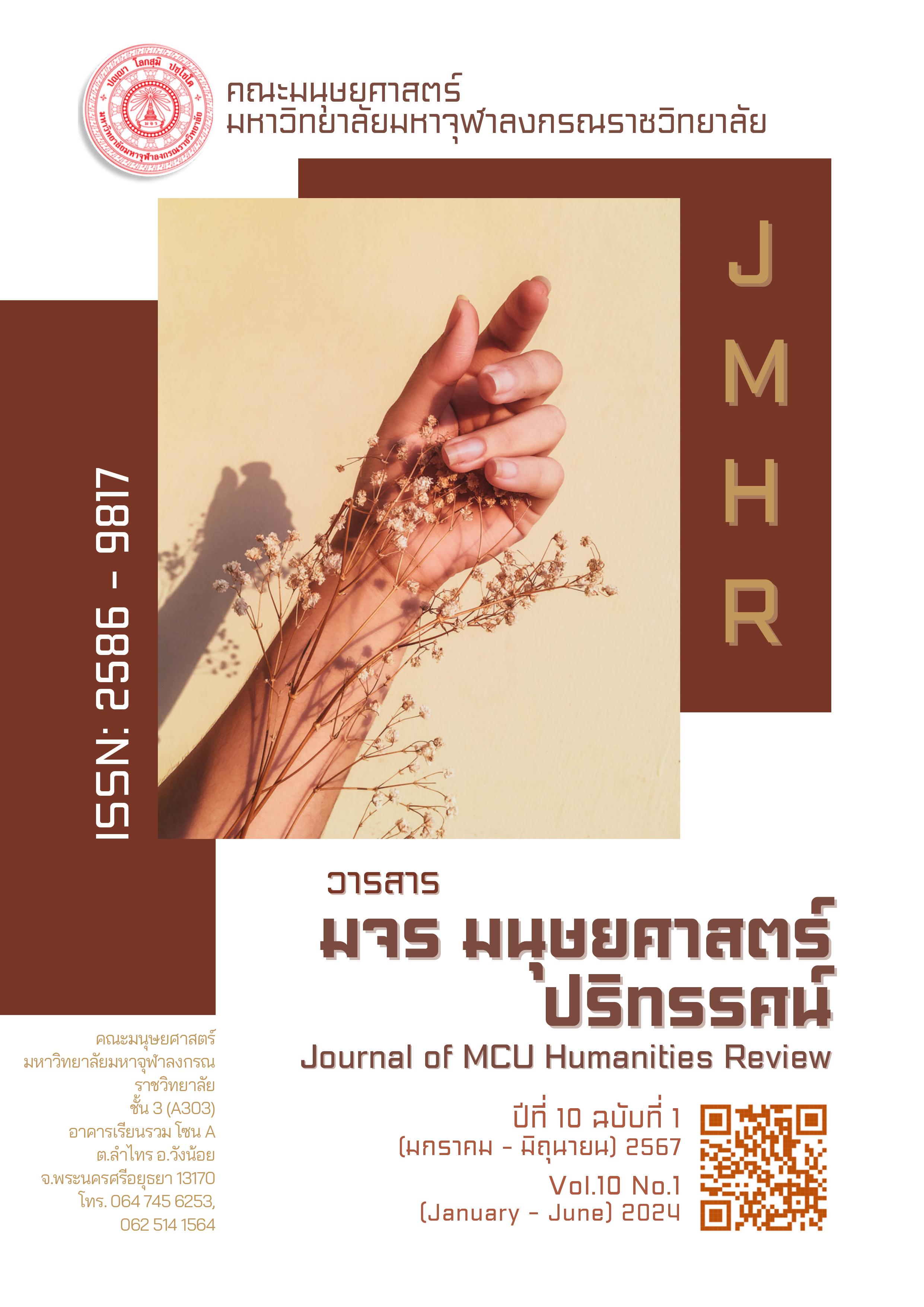การพัฒนาผลสัมฤทธิ์ทางการเรียน เรื่องคำภาษาต่างประเทศในภาษาไทยของนักเรียนชั้นมัธยมศึกษาปีที่ 3 ด้วยวิธีการจัดการเรียนรู้แบบสืบเสาะหาความรู้ (5E) ร่วมกับแบบฝึก
คำสำคัญ:
การพัฒนา, ผลสัมฤทธิ์ทางการเรียน, ภาษาต่างประเทศ, การเรียนรู้แบบสืบเสาะความรู้, แบบฝึกบทคัดย่อ
การวิจัยครั้งนี้มีวัตถุประสงค์ 1. เพื่อหาประสิทธิภาพของแบบฝึก เรื่องคำภาษาต่างประเทศในภาษาไทยของนักเรียนชั้นมัธยมศึกษาปีที่ 3 ด้วยวิธีการจัดการเรียนรู้ แบบสืบเสาะหาความรู้ (5E) ตามเกณฑ์มาตรฐาน 80/80 2. เพื่อเปรียบเทียบผลสัมฤทธิ์ทางการเรียนเรื่อง คำภาษาต่างประเทศในภาษาไทยของนักเรียนชั้นมัธยมศึกษาปีที่ 3 ก่อนและหลังการจัดการเรียนรู้ แบบสืบเสาะหาความรู้ (5E) ร่วมกับแบบฝึก และ 3. เพื่อศึกษาความพึงพอใจของนักเรียนชั้นมัธยมศึกษาปี ที่ 3 ที่มีต่อการจัดการเรียนรู้ แบบสืบเสาะหาความรู้ (5E) ร่วมกับแบบฝึก รูปแบบการวิจัยเป็นเชิงทดลองแบบกลุ่มเดียวสอบก่อนเรียนและสอบหลัง โดยมีกลุ่มตัวอย่าง คือ นักเรียนชั้นมัธยมศึกษาปีที่ 3/1 โรงเรียนประชาสงเคราะห์วิทยา จังหวัดพิษณุโลก จำนวน 40 คน ได้มาจากการสุ่มอย่างง่าย โดยใช้ห้องเรียนเป็นหน่วยสุ่มด้วยวิธีการจับสลาก เครื่องมือที่ใช้ในการวิจัย ได้แก่ 1) แบบฝึกเรื่อง คำยืมภาษาต่างประเทศ ระดับชั้นมัธยมศึกษาปีที่ 3 2) แผนการจัดการเรียนรู้วิชาภาษาไทย เรื่อง คำยืมภาษาต่างประเทศด้วยวิธีการจัดการเรียนรู้แบบสืบเสาะหาความรู้ร่วมกับแบบฝึก 3) แบบทดสอบวัดผลสัมฤทธิ์เรื่อง คำยืมภาษาต่างประเทศ ระดับชั้นมัธยมศึกษาปีที่ 3 4) แบบสอบถามความพึงพอใจของนักเรียน ที่มีต่อวิธีการจัดการเรียนรู้แบบสืบเสาะหาความรู้ร่วมกับแบบฝึก เรื่อง คำยืมภาษาต่างประเทศในภาษาไทย และสถิติที่ใช้ในการวิเคราะห์ข้อมูล ได้แก่ ค่าเฉลี่ย ส่วนเบี่ยงเบนมาตรฐาน การทดสอบค่าทีแบบไม่เป็นอิสระต่อกัน และหาประสิทธิภาพของของแบบฝึก เรื่องคำภาษาต่างประเทศในภาษาไทยของนักเรียนชั้นมัธยมศึกษาปี ที่ 3 ด้วยวิธีการจัดการเรียนรู้ แบบสืบเสาะหาความรู้ (5E)
ผลการวิจัยพบว่า
- การสร้างและหาประสิทธิภาพแบบฝึก เรื่องคำภาษาต่างประเทศในภาษาไทยของนักเรียนชั้นมัธยมศึกษาปี ที่ 3 ด้วยวิธีการจัดการเรียนรู้ แบบสืบเสาะหาความรู้ (5E) พบว่า มีค่า ประสิทธิภาพ (E1 /E2) เท่ากับ 81.95/82.92 แสดงให้เห็นว่าการสร้างและหาประสิทธิภาพของแบบฝึกเรื่องคำภาษาต่างประเทศในภาษาไทยของนักเรียนชั้นมัธยมศึกษาปี ที่ 3 มีค่าสูงกว่าเกณฑ์ที่กำหนดไว้คือ 80/80
- ผลการเปรียบเทียบผลสัมฤทธิ์ทางการเรียนเรื่อง คำภาษาต่างประเทศในภาษาไทยของนักเรียนชั้นมัธยมศึกษาปี ที่ 3 ก่อนและหลังการจัดการเรียนรู้ แบบสืบเสาะหาความรู้ (5E) ร่วมกับแบบฝึก พบว่า มีคะแนนเฉลี่ยก่อนเรียน เท่ากับ 14.58 และมีคะแนนเฉลี่ยหลังเรียนเท่ากับ 24.88 โดยคะแนนหลังเรียนสูงกว่าก่อนเรียนอย่างมี นัยสำคัญทางสถิติที่ระดับ .05 และ
- ผลการศึกษาความพึงพอใจของนักเรียนชั้นมัธยมศึกษาปี ที่ 3 ที่มีต่อการจัดการเรียนรู้ แบบสืบเสาะหาความรู้ (5E) ร่วมกับแบบฝึก ภาพรวมอยู่ในระดับพึงพอใจมากที่สุด
เอกสารอ้างอิง
จิราพร บุดดีอ้วน. (2564). การพัฒนาแบบฝึกเสริมทักษะเรื่อง มาตราตัวสะกด กลุ่มสาระการเรียนรู้ภาษาไทย เพื่อส่งเสริมทักษะการเขียนประโยคของนักเรียนชั้นประถมศึกษาปีที่ 1 โรงเรียนบ้านหนองบัวงาม สังกัดสำนักงานเขตพื้นที่การศึกษาประถมศึกษาบึงกาฬ (วิทยานิพนธ์ปริญญาครุศาสตร์ มหาบัณฑิต). มหาวิทยาลัยราชภัฏสกลนคร. สกลนคร.
ชัยวัฒน์ สุทธิรัตน์. (2552). 80 นวัตกรรมการจัดการเรียนรู้ที่เน้นผู้เรียนเป็นสำคัญ. กรุงเทพฯ : แดเน็กซ์ อินเตอร์คอร์ปอเรชัน.
ณัฐศิษฏ์ ถาวร. (2564). การเปรียบเทียบผลสัมฤทธิ์ทางการเรียนวรรณคดีไทยเรื่องมหาเวสสันดรชาดก กัณฑ์มัทรีของนักเรียนชั้นมัธยมศึกษาปีที่ 5 ด้วยการจัดการเรียนรู้แบบสืบเสาะหา ความรู้ (5E) ร่วมกับสื่อประสม (การค้นคว้าอิสระปริญญาการศึกษามหาบัณฑิต). มหาวิทยาลัยนเรศวร. พิษณุโลก.
ทิศนา แขมณี. (2550). 14 วิธีสอนสำหรับครูมืออาชีพ. กรุงเทพฯ : จุฬาลงกรณ์มหาวิทยาลัย.
บุญชม ศรีสะอาด. (2553). การวิจัยเบื้องต้น (พิมพ์ครั้งที่ 5). กรุงเทพฯ : สุวีริยะสาส์น.
ปิยนุช แหวนเพชร. (2560). การพัฒนาผลสัมฤทธิ์ทางการเรียนวรรณคดีของนักเรียนชั้นมัธยมศึกษาปีที่ 3โดยใช้วิธีสอนแบบสืบเสาะหาความรู้ร่วมกับเทคนิคการใช้แผนที่ความคิด (วิทยานิพนธ์ ปริญญาศึกษาศาสตรมหาบัณฑิต). มหาวิทยาลัยศิลปากร. นครปฐม.
พระนิวัฒน์ มหาโชติวฑฺฒโน. (2565). การพัฒนาการจัดการเรียนรู้แบบออนไลน์ด้วยแบบฝึกทักษะร่วมกับเทคนิค TGT เรื่อง คํายืมภาษาบาลี - สันสกฤตในภาษาไทยสําหรับนักเรียนชั้นมัธยมศึกษาปีที่ 6. วารสารวิชาการและวิจัย มหาวิทยาลัยภาคตะวันออกเฉียงเหนือ, 12(2), 313-327
พิกุล จันทร์นาลาว. (2565). การพัฒนาผลสัมฤทธิ์ทางการเรียนวรรณคดี เรื่อง พระอภัยมณี ตอนพระอภัยมณีหนีนางผีเสื้อ โดยใช้การจัดการเรียนรู้แบบสืบเสาะหาความรู้ร่วมกับเกมการศึกษาของนักเรียนชั้นมัธยมศึกษาปีที่ 3. (วิทยานิพนธ์ปริญญาศึกษาศาสตร์มหาบัณฑิต). มหาวิทยาลัย นเรศวร. พิษณุโลก.
ภพ เลาหไพบูลย์. (2552). แนวทางการสอนวิทยาศาสตร์ ระดับอุดมศึกษา. กรุงเทพฯ : ไทยวัฒนาพานิช.
วิไลศักดิ์ กิ่งคำ. (2550). ภาษาต่างประเทศในภาษาไทย. กรุงเทพฯ. : ภาควิชาภาษาไทย คณะมนุษย์ศาสตร์ มหาวิทยาลัยเกษตรศาสตร์.
ศิริภา จันทร์เกื้อ (2562). การพัฒนาผลสัมฤทธิ์ทางการเรียนโดยใช้แบบฝึกทักษะเรื่องการสังเกตคำภาษาบาลี และคำภาษาสันสกฤตสำหรับนักเรียนชั้นมัธยมศึกษาปีที่ 2 โรงเรียนพะตงประธานคีรีวัฒน์ อำเภอหาดใหญ่ จังหวัดสงขลา. ในการประชุมหาดใหญ่วิชาการระดับชาติและนานาชาติ ครั้งที่ 10 วันที่ 12 – 13 กรกฎาคม 2562 (น. 1,134–1,147). สงขลา: มหาวิทยาลัยหาดใหญ่.
สุชาดา เจียพงษ์. (2564). หลักภาษาไทย. พิษณุโลก : การพิมพ์ดอทคอม.
ดาวน์โหลด
เผยแพร่แล้ว
รูปแบบการอ้างอิง
ฉบับ
ประเภทบทความ
หมวดหมู่
สัญญาอนุญาต
ลิขสิทธิ์ (c) 2024 วารสาร มจร มนุษยศาสตร์ปริทรรศน์

อนุญาตภายใต้เงื่อนไข Creative Commons Attribution-NonCommercial-NoDerivatives 4.0 International License.






